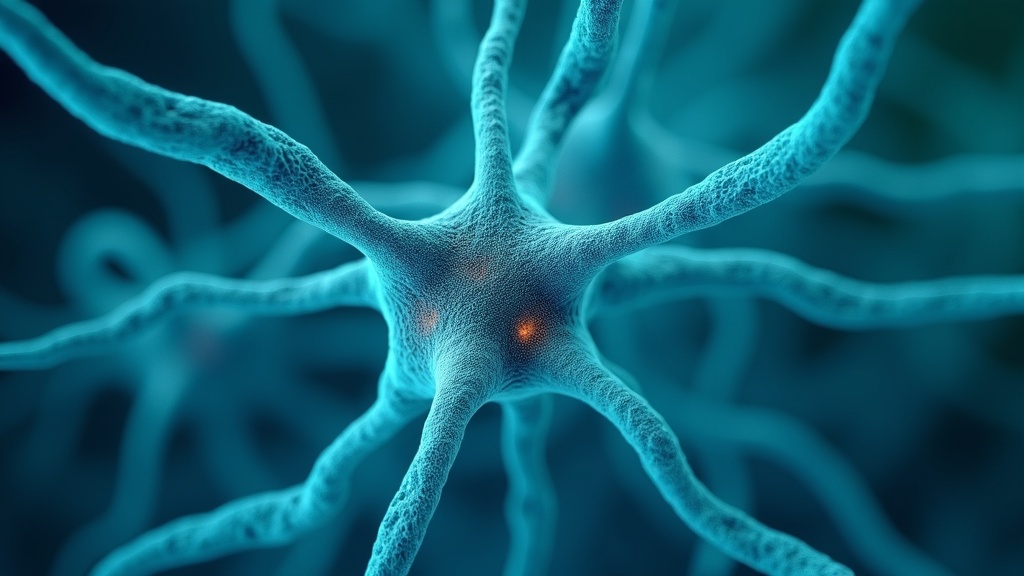How Is Alzheimer’s Transmitted
Alzheimer’s disease is one of the most widely recognized brain disorders, but many people still have questions about how it develops and whether it’s something that can be “caught” or passed along to others. I know it can be unsettling to hear about Alzheimer’s, especially when a loved one is impacted. So, I’m here to break down the true facts about how Alzheimer’s works—covering transmission myths, genetics, real risks, and what science knows today.

What Does It Mean For a Disease To Be Transmitted?
When people ask about whether Alzheimer’s can be transmitted, they often imagine something you can “catch,” the way the flu or a cold moves from one person to another. In medicine, transmission usually means some form of virus, bacteria, or prion is shared through touch, droplets, or other means, leading to illness. Alzheimer’s doesn’t follow this path. It’s not contagious in the standard sense.
Instead, the main questions around Alzheimer’s transmission relate to whether it could spread through physical closeness, blood transfusions, organ donations, or other medical procedures. To really check out this issue, we need to dig into what causes Alzheimer’s and what research reveals about its progression.
Understanding What Causes Alzheimer’s
Scientists have spent years examining the root causes of Alzheimer’s. The consensus is that Alzheimer’s is a highly complex disease arising from a combination of genetic, environmental, and lifestyle factors. Central to the disease are the buildup of beta-amyloid plaques and tau tangles, which disrupt how nerves communicate and lead to hallmark symptoms like memory loss and confusion.
There’s no virus, bacteria, or typical infectious agent causing Alzheimer’s. For nearly everyone, there’s zero evidence that you can “catch” Alzheimer’s from someone else, even after years of close living or caregiving.
Is Alzheimer’s Contagious?
This is probably the question I hear the most. The short answer: No, Alzheimer’s is not contagious. You can’t get it by touching, hugging, or caring for someone who has it. Friends, families, and caregivers aren’t at risk from being close or sharing a home with someone living with Alzheimer’s. Everyday activities—cooking together, sharing meals, or cleaning up—are all safe.
Both the CDC and the Alzheimer’s Association state clearly that daily contact poses no risk for Alzheimer’s transmission. A person with Alzheimer’s isn’t carrying or spreading any germ or organism that could infect you. However, researchers continue to investigate some rare medical scenarios—which I’ll look at next.
Rare Cases and Research: Can Prion-Like Mechanisms Play a Role?
This gets a little technical, but I’ll keep it simple. Some studies have shown that abnormal beta-amyloid proteins, which collect in Alzheimer’s brains, act a lot like prions. Prions are the unusual proteins that lead to diseases like mad cow and a few other rare conditions. They “behave” by encouraging normal proteins to change and clump in a certain way—mostly in specific medical environments, not in everyday life.
Certain animal experiments showed that when scientists injected beta-amyloid from human brains into test animals, those animals sometimes developed similar brain changes. Decades ago, a very few human patients who got contaminated pituitary gland extracts ended up with patches of beta-amyloid in their brains—but these were extremely rare incidents tied to old medical procedures, not done today.
Experts agree: These findings don’t mean daily life or care work can spread Alzheimer’s. There’s no proof anyone has gotten Alzheimer’s by being close to a person with the disease outside of isolated, unusual medical situations.
Is There Any Risk From Medical Procedures?
Modern hospitals use extremely strict cleaning and sterilizing standards for surgical tools, especially those used in brain procedures or transplants. Organ transplants and blood transfusions involve heavy screening, and there are no documented cases of Alzheimer’s being passed along this way. If you’ve had brain surgery, received blood, or an organ transplant, you don’t need to worry about Alzheimer’s transmission from these events.
For caregivers or patients, the risk of “catching” anything related to Alzheimer’s through medical procedures is virtually zero. This concern is based on unusual events from the past, not anything likely today.
Genetic Factors: Can Alzheimer’s Run in Families?
While you can’t “catch” Alzheimer’s, you might inherit a higher risk depending on your family history. There are two broad genetic types of Alzheimer’s: early onset familial and the more common late onset version.
- Early onset familial Alzheimer’s: This rare form happens before age 65, and is linked directly to gene mutations parents can pass down. The risk is much higher if you’ve inherited the mutation, but this accounts for only about 1% of Alzheimer’s cases.
- Late onset Alzheimer’s: This is the far more common form. Genes like APOE (especially the APOE-e4 variant) bump up risk, but it’s not a guarantee. Many people with the gene don’t develop Alzheimer’s at all, and lots of Alzheimer’s patients don’t have this gene type.
Family history can raise your risk, but it’s not a sure thing. Inherited risk is not the same as direct transmission.
Lifestyle and Environmental Factors
Lifestyle has a major impact on Alzheimer’s risk. Issues like heart disease, obesity, smoking, physical inactivity, untreated diabetes, or chronic stress and depression can step up your chances. These factors aren’t about “catching” anything from others—they relate to personal habits and long-term brain health.
According to recent research, daily choices do matter. Activities like regular exercise, sticking to nutritious diets (think Mediterranean-style), good sleep routines, and keeping your mind busy all lower risk. Sharing living space, meals, or working alongside someone with Alzheimer’s won’t change your risk due to these habits.
Things To Consider If You’re Worried About “Catching” Alzheimer’s
If you’re a caregiver or love someone with Alzheimer’s, concern is natural. Here are some key things to remember:
- No risk from casual contact: Hugs, meals together, or close caring will not put you at risk for getting Alzheimer’s.
- Build connections, not distance: Staying socially involved helps both caregivers and loved ones; isolation only hurts.
- If you have family history: It makes sense to wonder about your risk, but talking to your doctor or genetic counselor can put things in perspective. Remember, lifestyle changes and regular checkups carry a big influence.
- Stay proactive with health: Make smart choices—healthy food, exercise, good sleep, and social activity. These boost your brain no matter your genetics.
Are There Any Special Situations Where Risk Changes?
In very rare situations, like people receiving certain contaminated injections or brain tissues decades ago, risk did go up, but these events no longer happen. Routine care, household contact, or even medical situations today carry zero risk of Alzheimer’s transmission.
Examples of Alzheimer’s in Families and Populations
Some families see more than one member affected by Alzheimer’s and get worried about patterns. Having a parent with Alzheimer’s does mean your own chances are somewhat higher, but for most people, the overall risk is still lower than not developing Alzheimer’s at all.
Even when a family carries a rare genetic mutation for early onset Alzheimer’s, only those with the gene actually get the disease. Many people live for decades alongside affected relatives without developing it themselves unless they inherit the specific gene.
- Population trends: Studies show different places have higher or lower rates, often based on diet, lifestyle, education level, and general health, not just on genetics. This highlights the huge role that habits and environment play in shaping someone’s risk.
Frequently Asked Questions
Here are some of the most common questions people have about whether Alzheimer’s can be passed around:
Question: Can I catch Alzheimer’s from kissing, sharing food, or close contact?
Answer: No. Alzheimer’s can’t be spread through daily contact, sharing utensils, or hugging. There isn’t any virus or infectious protein exchanged in these ways.
Question: Should I worry if I donate blood or an organ to someone with Alzheimer’s, or receive a donation myself?
Answer: No need to worry—there’s no evidence Alzheimer’s can be transmitted by organ or blood donation, thanks to modern screening and safety.
Question: Can pets or animals spread Alzheimer’s between people?
Answer: Not at all. Animals play no role in spreading or increasing Alzheimer’s risk for people.
Question: Is it safe to work or volunteer in memory care settings?
Answer: Absolutely. There’s no extra risk for family, staff, or volunteers working around people with Alzheimer’s.
Real Ways to Lower Your Risk
Even though you can’t “catch” Alzheimer’s, you can aim to keep your brain as healthy as possible. Physical activity, heart-smart foods, solid sleep, and managing conditions like blood pressure all make a big difference. Getting involved with friends, learning new things, and staying mentally active also give your brain a boost. Studies agree—these healthy habits count, regardless of your family background.
Wrapping up: Alzheimer’s isn’t a contagious disease. Making positive choices for brain health and staying informed make the biggest difference—far more than worrying about transmission. If you have worries or unique circumstances, check in with your healthcare provider for personalized advice.
